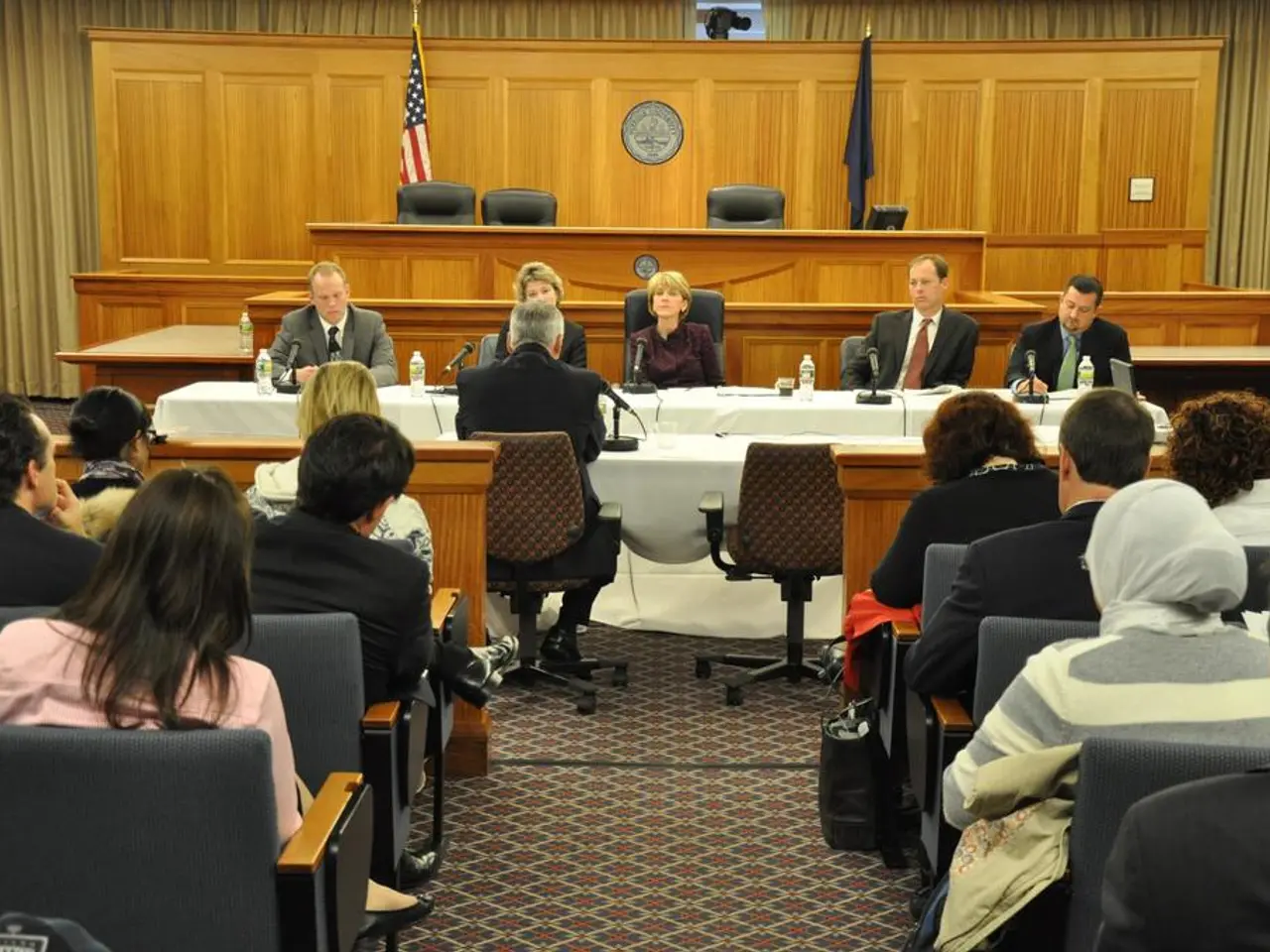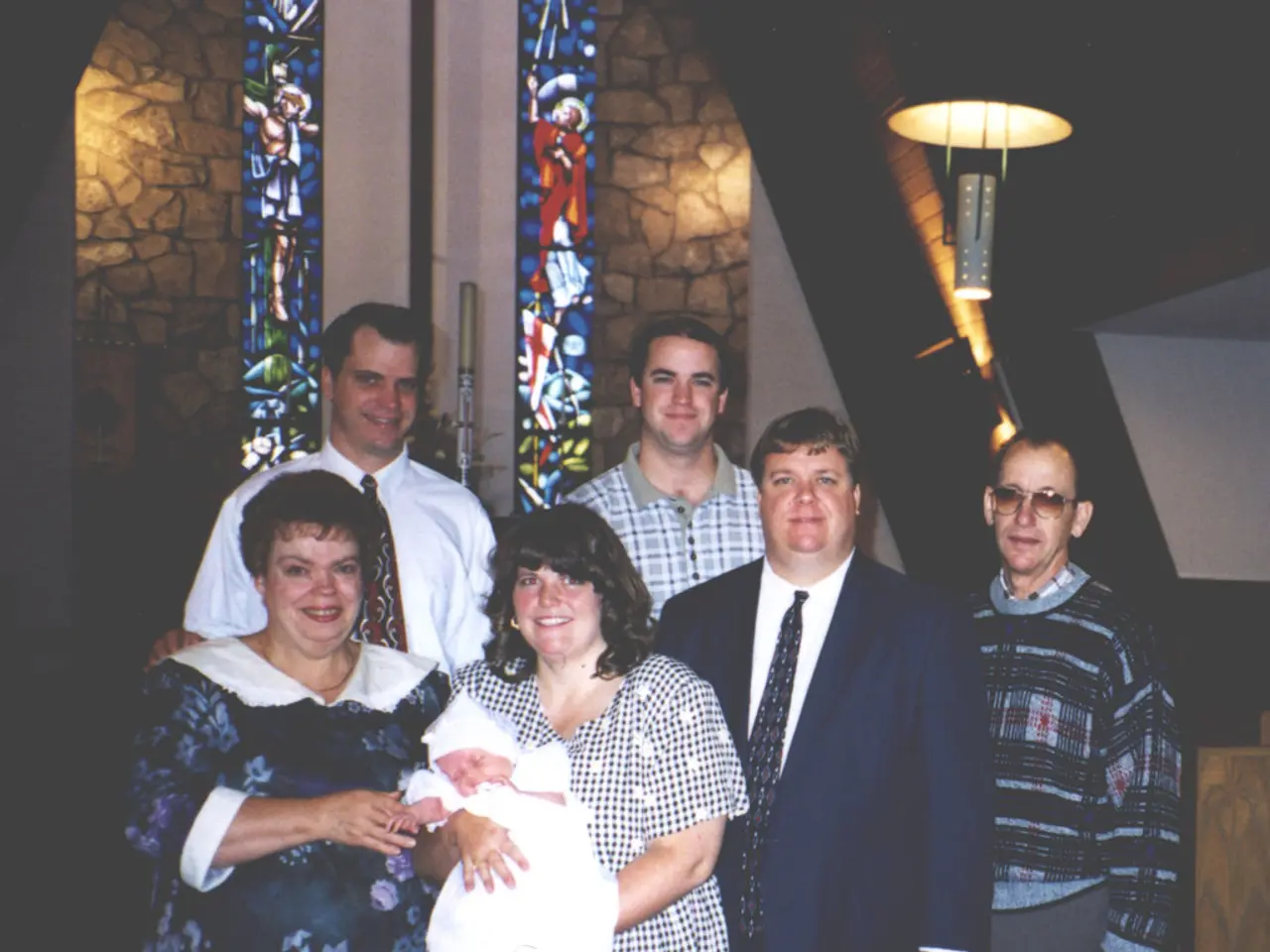SPD in Harburg faces dissent after the election of the new district chairman, as members question the legitimacy of the process prior to the vote.
In the political landscape of Harburg, Germany, the Social Democratic Party of Germany (SPD) is navigating through a period of internal division, a development that could potentially impact the formation of a coalition for the town hall.
Recent developments have seen the SPD, traditionally the largest party in Harburg, presenting an optimistic front to the outside world, but signs of deep internal division are evident. Among the issues causing unrest within the party are disputes over policy positions, leadership choices, and strategic alliances.
The SPD's district chairwoman, Claudia Loss, has taken over from Oksan Karakus, who has been moved to a secondary position. However, the Harburg CDU faction's opposition to Fredenhagen, a controversial district administrator, has caused annoyance within the SPD, with the CDU presenting a counter-candidate to Fredenhagen.
The SPD's potential coalition partners, the Greens and The Left, may find themselves in a delicate position. While the SPD favours a coalition with these parties, the Greens' poor result in the last election may make The Left a necessary third party in the potential coalition.
Intriguingly, the CDU, although not explicitly mentioned as a potential partner, could play a role in negotiations due to their opposition to Fredenhagen.
The investigations into the disputes, which involve damaged election posters and subsequent house searches at six members, are being conducted by the state criminal police's state protection department. Two of the suspects have been temporarily banned from party activities.
The absence of delegates from three districts in a recent meeting could potentially lead to a situation that ends against a wall for the Harburg SPD. Three out of eight districts within the Harburg SPD district association did not attend the meeting, indicating division within the party.
The voting behavior in secret elections remains uncertain, adding to the overall uncertainty of the coalition's formation. The SPD's district board, which includes Claudia Loss, Sven Hey, Henning Reh, and Birgit Rajski as treasurer, is eager to "take off", but the internal disputes and potential split remain unresolved.
While the exact impact of these internal disputes on coalition formation and district leadership is unclear due to the limited information available, it is evident that the situation is complex and requires close monitoring. For detailed and current analysis, consulting local news sources or official SPD communications from Harburg would be necessary.
Other political parties in Harburg, Germany, such as the Greens and The Left, might find themselves in a complex negotiating position given the internal division within the SPD, as the SPD's policy-and-legislation stances and strategic alliances could significantly influence coalition formation. The CDU, despite not being explicitly mentioned as a potential partner, could potentially play a role due to their opposition to Fredenhagen.





